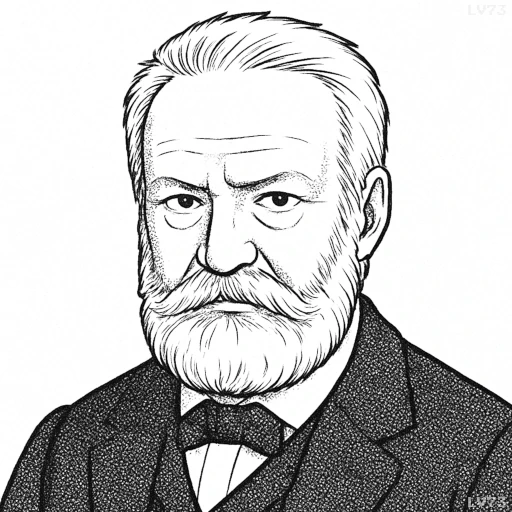“Nature has made a pebble and a female. The lapidary makes the diamond, and the lover makes the woman.”

- February 26, 1802 – May 22, 1885
- Born in France
- Author, poet, playwright
table of contents
Quote
“Nature has made a pebble and a female. The lapidary makes the diamond, and the lover makes the woman.”
Explanation
Victor Hugo’s quote contrasts the raw, unrefined forms created by nature with the transformative power of human influence. He likens nature to a pebble and a female, suggesting that while both are inherently valuable, they are initially in their raw and unshaped states. Just as a lapidary (a skilled gem cutter) can take a rough pebble and transform it into a diamond, Hugo implies that a lover—through emotional connection, care, and affection—can shape a woman’s identity into something profound and unique. This idea touches on the transformative power of love and relationships, where a person’s true potential and beauty can be brought to light by another’s deep, genuine connection.
Hugo’s view on love aligns with the Romantic ideals of the time, which celebrated the emotional, idealized, and often spiritual nature of romantic relationships. The comparison between the lapidary and the lover suggests that love, much like artistry, can shape a person into their best version—revealing hidden depth and beauty that may not be immediately apparent. The metaphor suggests that love is not just an emotional experience but a force that brings out the inner essence of an individual.
In modern times, this quote reflects the idea that relationships can profoundly impact personal growth and self-discovery. Just as a diamond shines brighter with careful cutting, a person may grow more confident and self-actualized when nurtured by a loving, supportive partner. However, it also raises questions about the dynamics of relationships and whether such a transformation is always positive or dependent on mutual respect and equality. In a world where love is often idealized, Hugo’s quote serves as a reminder of the potential power and responsibility inherent in deeply emotional connections.
Would you like to share your impressions or related stories about this quote in the comments section?




